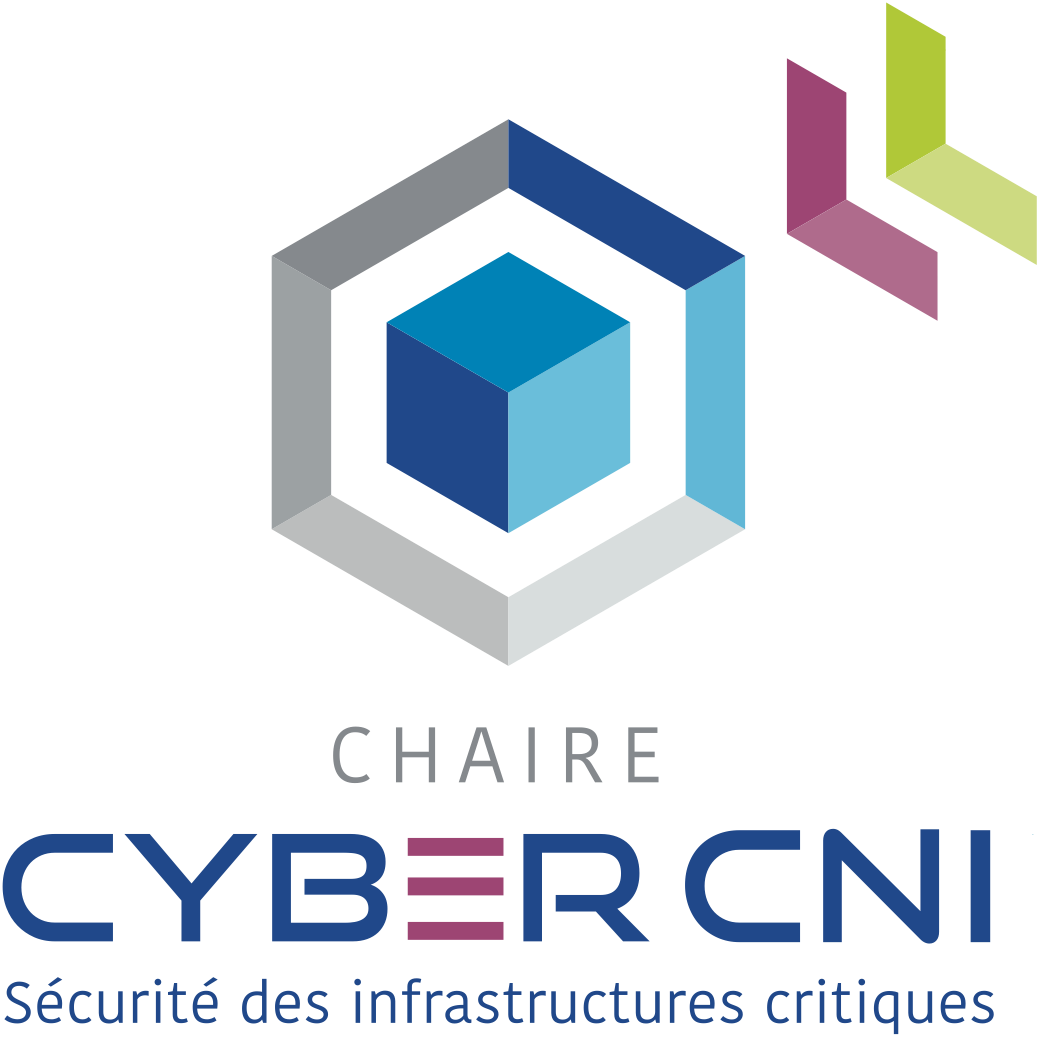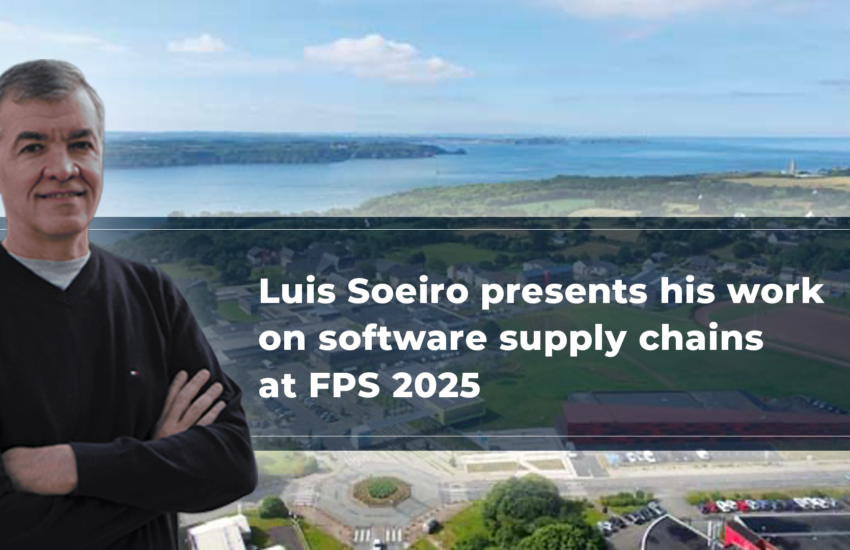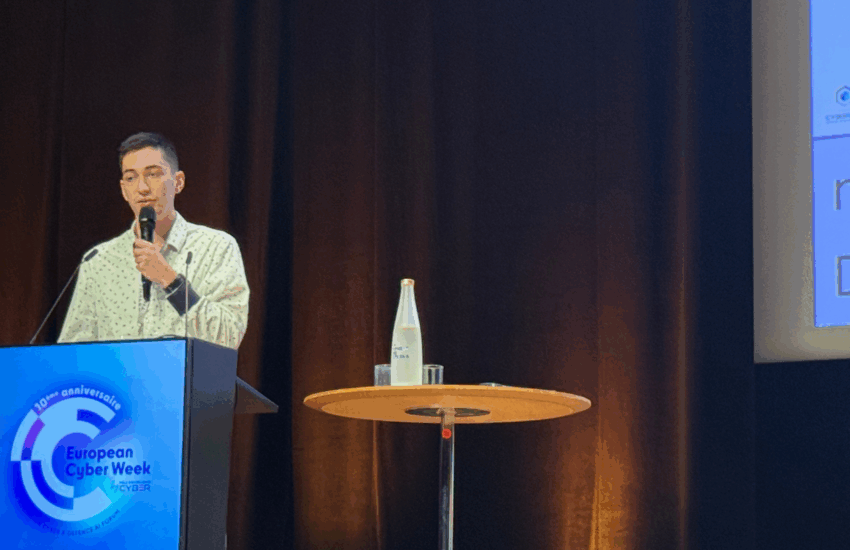[RU2/22] Loïc MILLER : Sécurité collaborative
On Oct 17, 2022, our postdoc Loïc Miller presented her latest results regarding “sécurité collaborative“. This presentation took place during the research update fall 2022 event of the chair Cybersecurity for Critical Networked Infrastructures (cyberCNI.fr) at the SNCF Head Office. You find more infos on our website https://cyberCNI.fr/
We cordially invite you to contact us for collaborations, partnerships, etc. We are constantly looking for new industry partners to strengthen our profile. Make an appointment to find out more!
To see the video, click on this link : https://youtu.be/LABJG0Njz1U
Abstract
This postdoc is about the efficient use of Distributed Ledgers (DL) for Cybersecurity. We first want to get an overview on current and past usages of DLs in cybersecurity contexts. We also target relating them
to technological developments aroung DLs. Then we want to focus on promising applications in the context of the chair such as remote software update, anomaly detection, or model federation, and how those can be improved by adding the consensus brought in with DLs. Application domains have different approaches to using DLs, and there has not been any effort to compare and bring those approaches together. During this postdoc, we therefore plan to bridge the gap between those approaches, and investigate how blockchain has been used to enable collaborative cybersecurity systems. We plan to define the current state of the art, as well as outline open research issues and areas of future works.
Based on those findings, we will pursue the most appropriate lead. In 2008, Satoshi Nakamoto introduced Bitcoin to the world, effectively developing the first blockchain database. Since then, the use of blockchain
has grown tremendously, and proved itself useful in many domains such as the Internet of Things, healthcare and Intrusion Detection Systems. With the advent of cloud services and the Internet of Things, decentralized approaches for trust management have gained a lot of traction. As the blockchain provides a distributed ledger, it has received a lot of consideration as a viable alternative to traditional centralized approaches.
About Loïc MILLER
I am working as a postdoctoral researcher in the SOTERN team at IMT Atlantique, under the Cyber CNI chair. I am presently investigating the use of distributed ledgers in collaborative cybersecurity systems, as well as more theoretical aspects of the blockchain. I have obtained my PhD from the University of Strasbourg, where I worked in the Networks Team of the ICube laboratory. During this time, I worked mainly on data leak prevention in multi-party workflows, but also on related aspects like access control, and on using metagraphs to represent security policies. In addition, I have worked on complexity proofs with hypergraphs.
Before my PhD, I obtained my master’s degree in Computer Networks and Embedded Systems from the University of Strasbourg. In the finalyear internship, I worked on network security in the Internet, and more specifically on the security of the BGP protocol. Those experiences have allowed me to gather a deep understanding of topics related to networking and cybersecurity in general. I have also been involved in the research community in general, giving courses to students, being part of the article review process, and being part of the organizing committee for conferences.
About Research Update
The cyberCNI.fr Research Updates happen once per semester. They are our big status event where our PhD students, PostDocs, and Engineers present their progress, current works, and next challenges. The research update is the perfect opportunity for getting an overview on and discussing what is going on at the chair.
About the chair Cybersecurity of Critical Networked Infrastructures (cyberCNI.fr)
The Cyber CNI Chair at IMT Atlantique does research, innovation, and teaching in the field of cybersecurity for critical networked infrastructures. Such infrastructures include industrial processes, financial systems, building automation, energy networks, water treatment plants, or transportation.
The chair covers the full stack from sensors and actuators and their signals over industrial control systems, distributed services at the edge or cloud, to user interfaces with collaborative Mixed Reality, and security policies. The chair currently hosts 9 PhD students, 4 PostDocs, 11 Professors, 1 engineer, and 1 internship student.
The chair runs a large testbed that enables applied research together with the industry partners. The industry partners of the current third funding round are Airbus, BNP Paribas, EDF, and SNCF. The chaire is located in Brittany, France. Brittany is the cybersecurity region number 1 in France. The chair Cyber CNI is strongly embedded in the cybersecurity ecosystem through its partnerships with the Pôle d’Excellence Cyber (PEC) and the Brittany Region.
The chair provides a unique environment for cybersecurity research with lots of development possibilities.
- Les AFTERS by Pôle Excellence Cyber - April 7, 2023
- Federated Learning as enabler for Collaborative Security between not Fully-Trusting Distributed Parties - February 10, 2023
- [RU2/22] Anthony DAVID : Virtual Reality for cybersecurity data vizualisation - December 21, 2022










